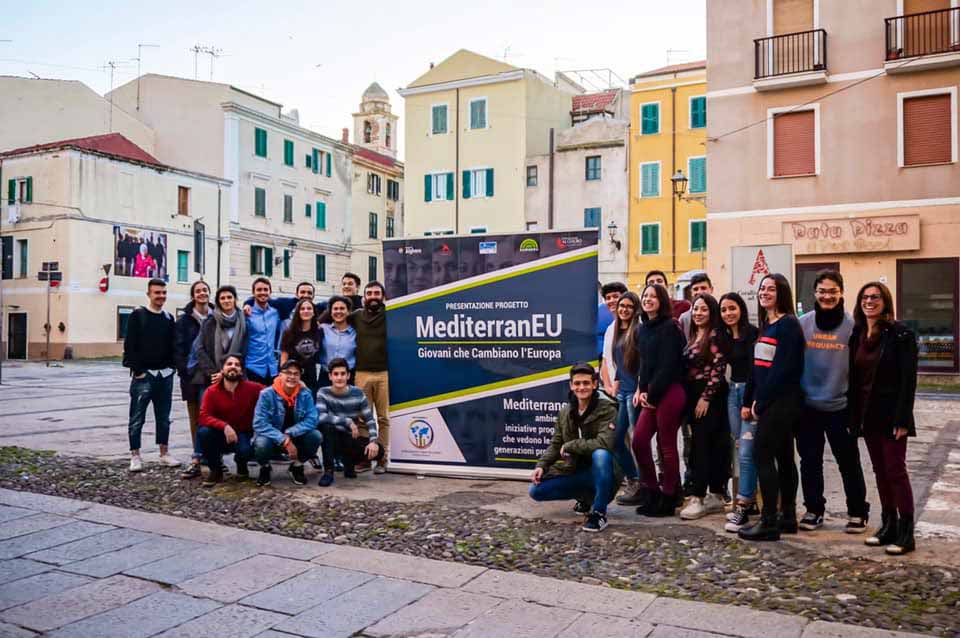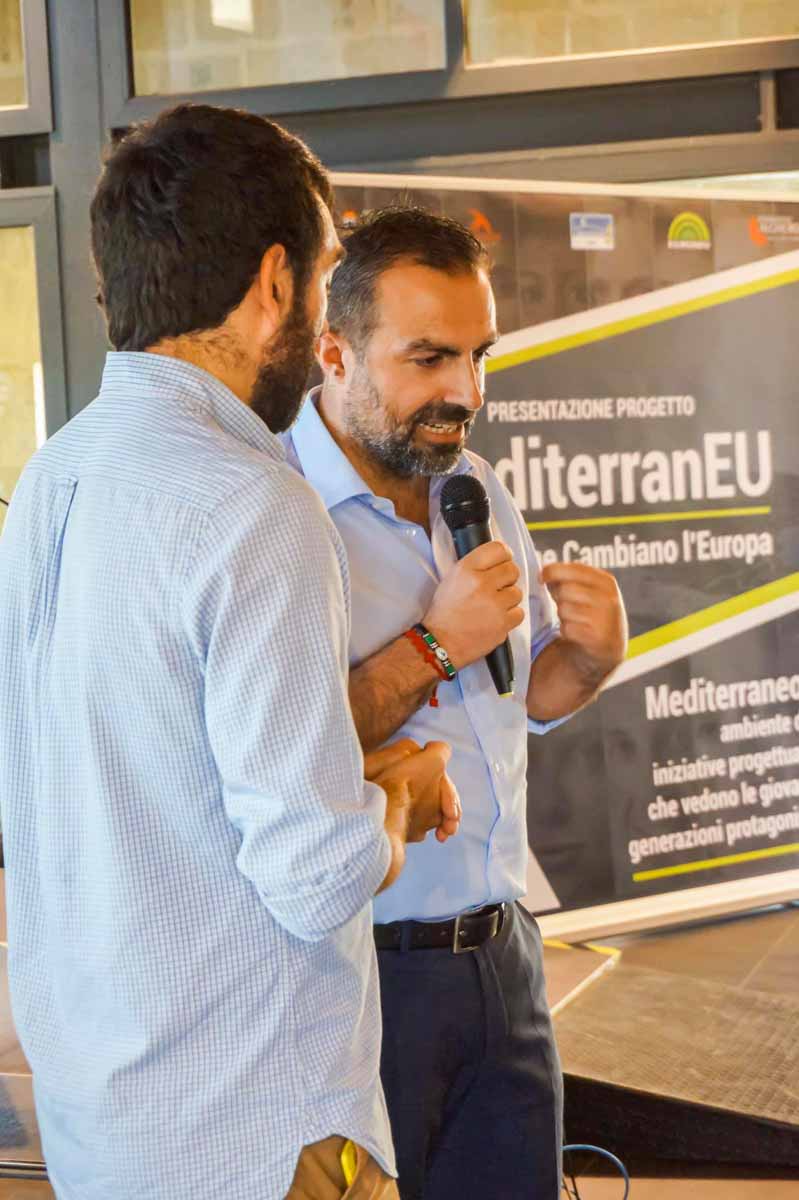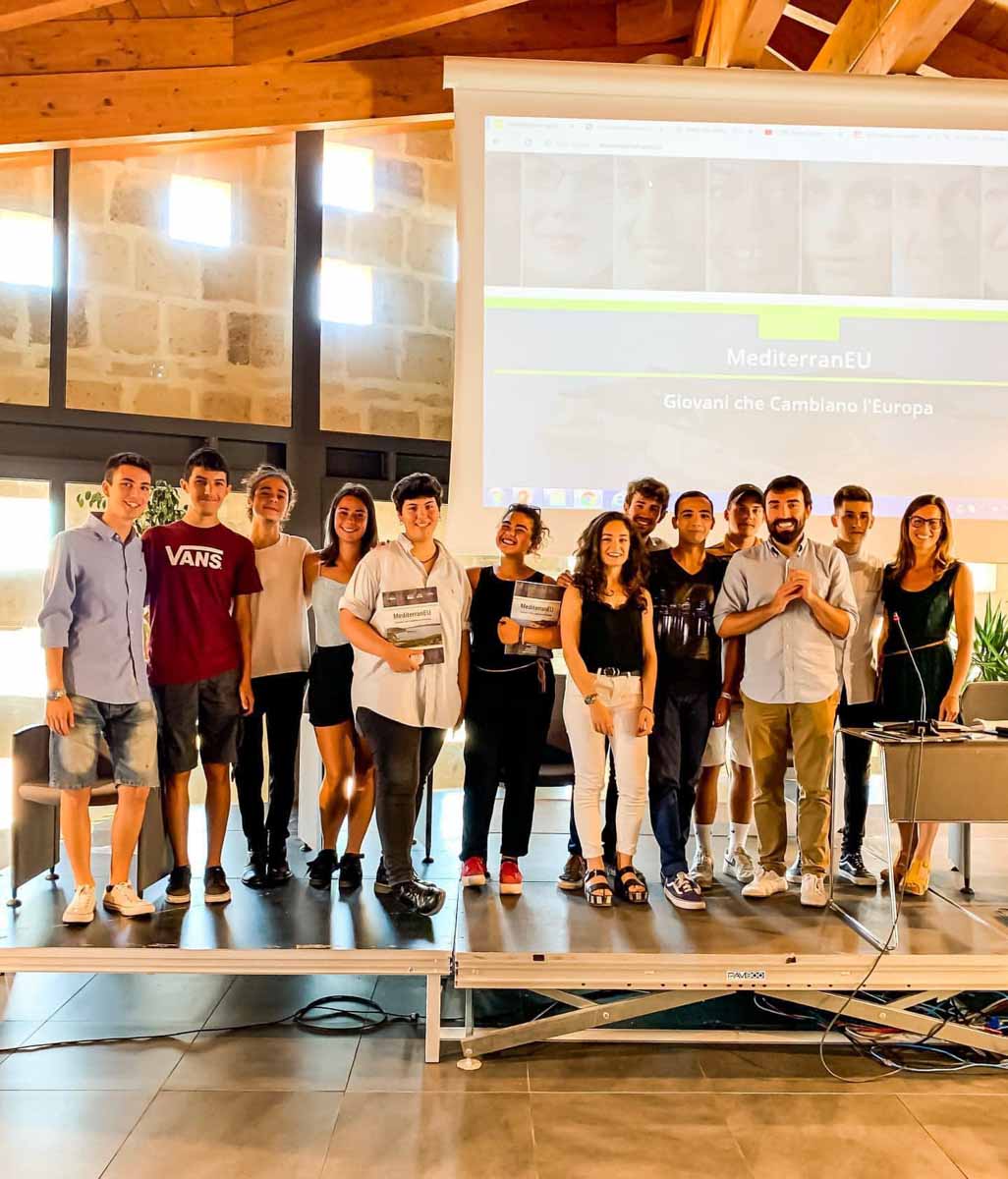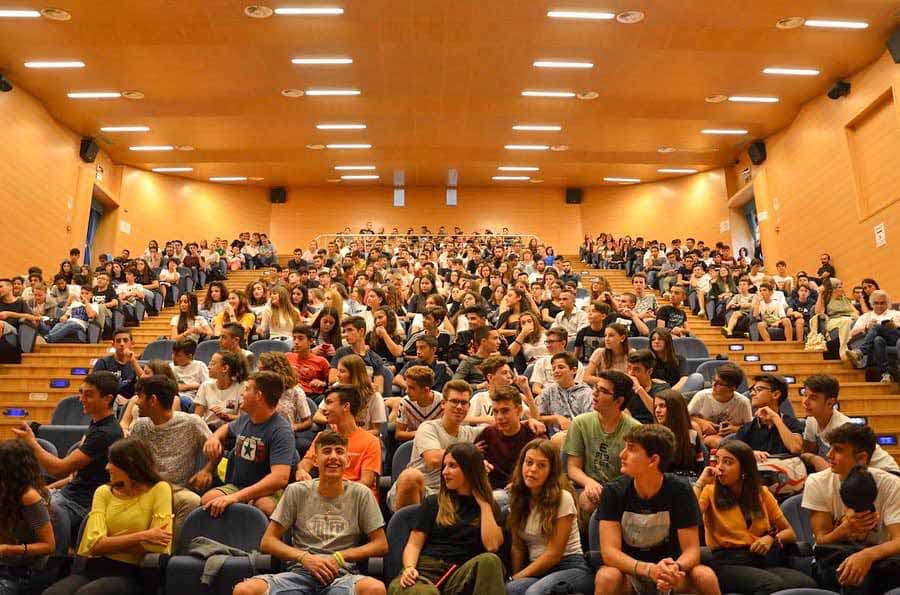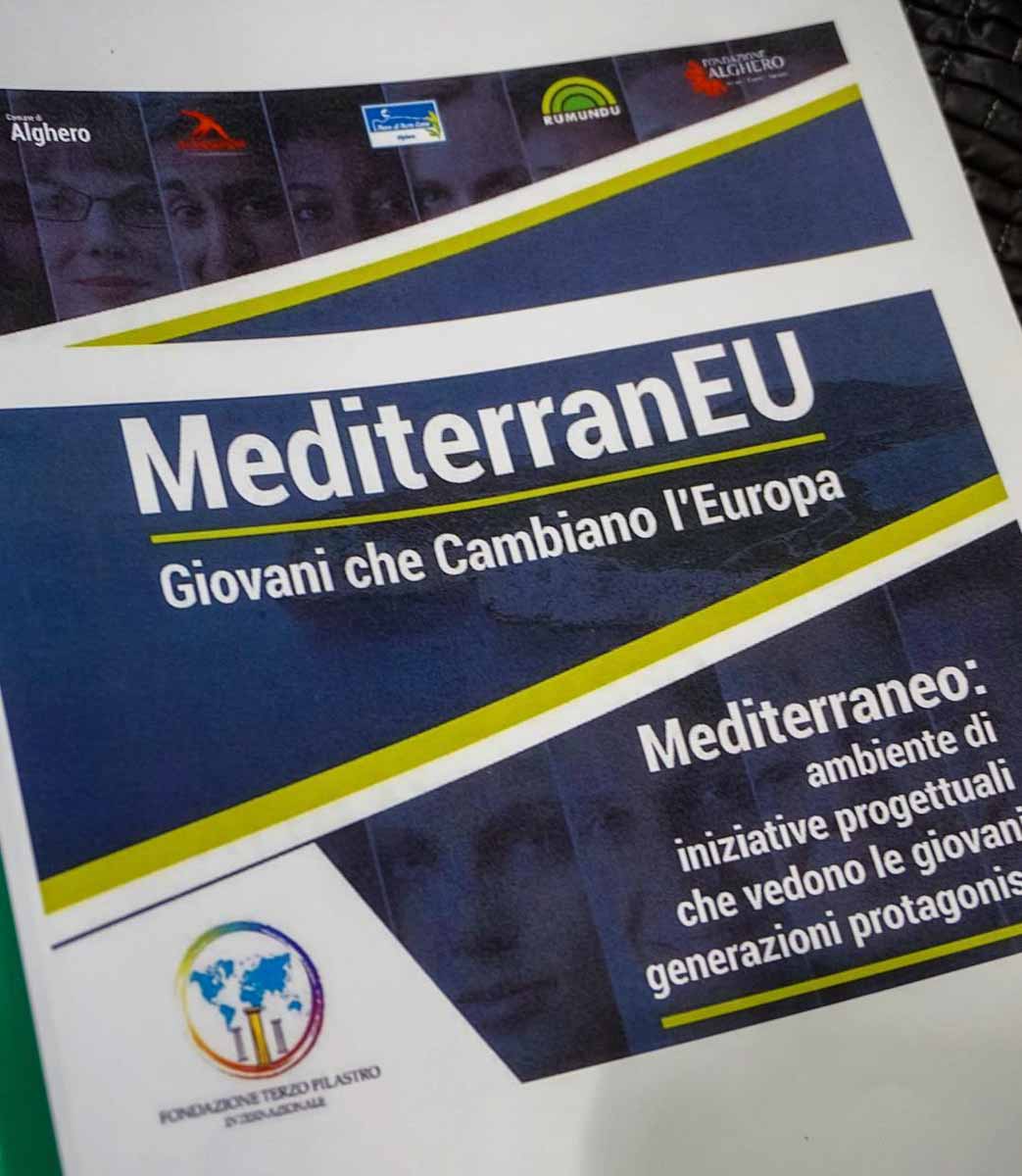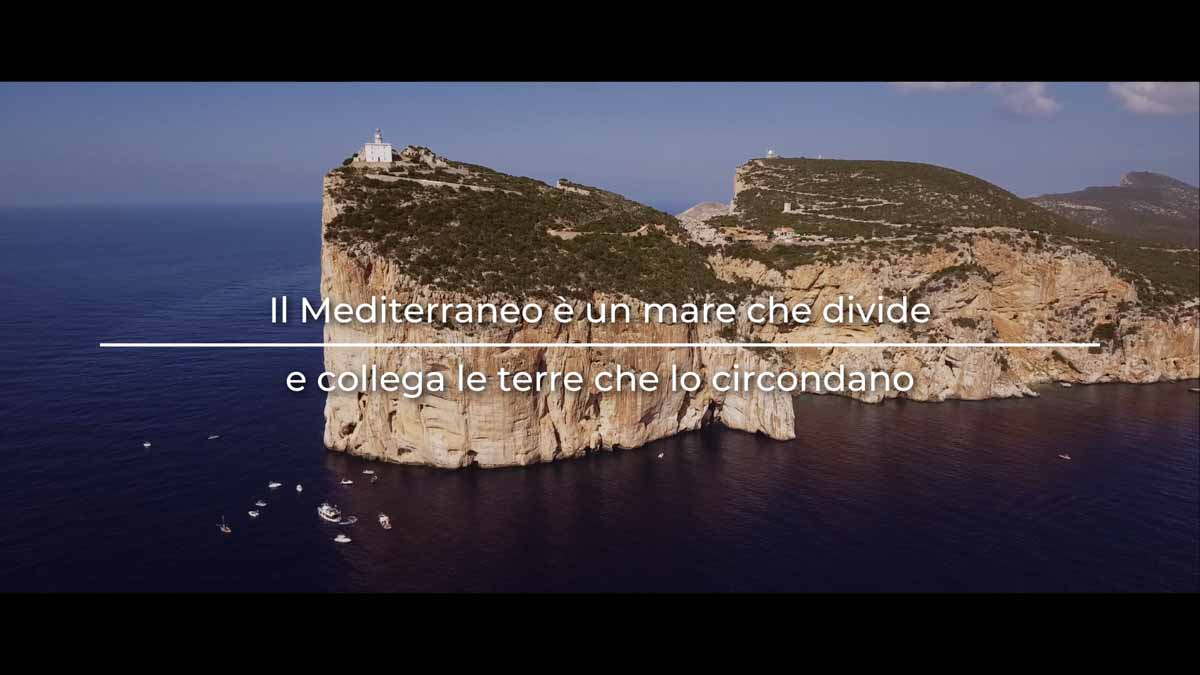Closing Conference
A new vision in development, based on the awareness that youths have when focusing on cooperation, innovation, social enterprise and sustainability, was created in Sardinia. This is where the Rumundu Association has established a School of Social Innovation and an Academy that operate in two separate directions. The first helps young Sardinians imagine new models of territorial growth, doing business and dialoguing with a managerial class that knows how to listen to requests, expectations and projects, as they take their first steps towards a Sardinia in which they wish to live in the future. The second hosts the last training step for those youths who – coming from areas of conflict and having experienced a culture of dialogue and confrontation, as well as having matured the idea that diversity is a value, after having coexisted in the international student body of the Rondine Cittadella della Pace Association of Arezzo – are ready to return to their territory with the fruits of the experiences they have gained, along with initiatives that produce concrete opportunities for the growth of their communities of origin.
Sostenuto dalla Fondazione Terzo Pilastro – Internazionale di Roma, che nel Mediterraneo sperimenta processi di collaborazione culturale, sociale, formativa ed economica, dal Comune di Alghero e dalla Fondazione Alghero ? che scommettono sul modello promosso da Rumundu e da Stefano Cucca, suo fondatore ? il percorso si basa sulla capacità di guardare allo sviluppo locale come base di un processo da sviluppare in un ambito geografico, economico e culturale più ampio. A rafforzarlo è la partnership con Rondine, la cui missione è rivolta al dialogo, alla comprensione e alla cooperazione tra giovani che arrivano da territori in guerra.
Insieme hanno dato vita a MediterranEu, incubatore di innovazione che supporta i giovani, insegnandogli a trasformare le idee in iniziative concrete e sostenibili.
Sono i giovani i protagonisti della sfida. Sono Davide Caria, studente algherese della prima edizione del progetto che oggi frequenta Ingegneria informatica a Torino, e i compagni alla scuola di innovazione sociale con cui ha piantato il seme di un progetto che oggi segue altrove un processo di incubazione d?impresa. Sono Georges Théodore Dougnon, maliano, ex studente di Rondine e allievo della prima edizione di MediterranEu, fondatore di Educ4Peace, e Vesna Buljian, serba, allieva del secondo ciclo e fondatrice di My Living Story. Sono Iris Cicuttini e gli altri studenti delle scuole di Alghero che promuovono l?uso responsabile dei social, sperimentando Tik Tok come veicolo di messaggi in favore di sostenibilità, riciclo e buone pratiche.
«MediterranEu ci ha fornito la cassetta degli attrezzi», è la metafora di Davide Caria, mentre Iris Cicuttini parla di «un?esperienza stimolante, si cresce come studenti e come cittadini». Georges Dougnon è consapevole di essere «lontano da risolvere i problemi e i conflitti del Mali, ma ognuno può contribuire», e Vesna Buljan racconta come «già a Rondine ho maturato l?idea che l?economia è uno strumento di pace».
MediterranEu per i partner e le istituzioni è oggi un modello. Per la viceministra dello Sviluppo economico, Alessandra Todde, «è uno strumento per immaginare insieme il futuro». Per l?assessora regionale della Cooperazione, Alessandra Zedda, «il coinvolgimento dei ragazzi è la stella polare di chi governa». Per il sindaco di Alghero, Mario Conoci, «ascoltiamo poco i giovani, ma loro più di noi hanno la visione del futuro». Per questo, «occorrono strategie e finalità nuove», dice l?assessore comunale del Turismo e della Cultura, Marco Di Gangi. «La sfida affascinante è prendere atto di quanto i ragazzi stanno comunicando», aggiunge Andrea Delogu, presidente della Fondazione Alghero.
Per Diana Battaggia, Head dell?Organizzazione delle Nazioni Unite per lo Sviluppo Industriale (UNIDO ITPO), «i protagonisti di MediterranEu possono contribuire al raggiungimento dei 17 obiettivi di sviluppo sostenibile delle Nazioni Unite». Per Tommaso Murè, Policy Advisor della presidenza del Consiglio dei ministri, «MediterranEu risponde al fondamentale requisito dell?interconnessione tra i pilastri dello sviluppo, ossia sostenibilità ambientale, economica e sociale». Giulia Parenti, Youth Delegate per l?Italia alle Nazioni Unite, sottolinea che gli elementi del progetto siano centrali «nei 169 target dell?agenda 20/30 delle Nazioni Unite». Stefano Cucca ne è convinto. «Per dare ruolo alle nuove generazioni verso lo sviluppo sostenibile occorre fornirgli input e stimolarne la sensibilità», afferma. «Stiamo mettendo su una buona pratica, dove la dimensione globale non fa sentire limitata quella locale, ma ne potenzia la capacità», dichiara Franco Vaccari, presidente di Rondine Cittadella della Pace.
Chiosa il PROFESSOR EMMANUELE F. M. EMANUELE, Presidente della Fondazione Terzo Pilastro ? Internazionale che sostiene il progetto: «MediterranEU è un progetto eccezionalmente innovativo e strategico. Il percorso, che vede i giovanissimi partecipanti italiani implementare progetti utili per la società in chiave di sviluppo sostenibile, e i 10 ragazzi provenienti da Paesi in conflitto di Europa, Africa e Medio Oriente formati per costruire dei progetti ?ad alto impatto di pace? e basso impatto ambientale nei luoghi di provenienza, è qualcosa che può fare la differenza e che, pertanto, vale assolutamente la pena replicare nell?intera area del Mediterraneo».
Opening Conference
“One of the crucial challenges towards achieving the objectives of the so-called 2030 Agenda established by the United Nations starts from Alghero.” This is what Maria Gabriella Lay, former functionary of the United Nations, stated at the opening conference of the MediterranEU Project, which took place on Friday, July 20th, 2019 in Porto Conte, along with other representatives of the United Nations: Tommaso Murè of the United Nations Youth Delegates, Andrea Carapellese of the United Nations Industrial Development Organization, and Simone Sanna of the UNESCO Italian Youths Sardinia, who inaugurated this initiative, created by Rumundu and supported by the fundamental contribution of the Fondazione Terzo Pilastro - Internazionale, under the aegis of its President, Prof. Emmanuele F. M. Emanuele, in order to help 30 young Sardinians design and create entrepreneurial activities with a high rate of sustainability. In parallel with this, 12 youths from countries in conflict will be selected to develop projects that will be implemented in their countries of origin. During the evening, the Rumundu Academy was also officially inaugurated. The Academy is the permanent School of Social Innovation that is bringing teachers and experts from all over the world to the northwest region of Sardinia. The project is organized with the collaboration of the Municipality of Alghero, the Rondine Association, the Alghero Foundation, and the Porto Conte Park, with the patronage of the Councilor for Culture of Sardinia.
The Mayor of Alghero, Mario Bruno, praised the initiative as being capable of helping youths to revolutionize the way they conceive work and themselves. Going into the specifics of the activities that will be introduced through this project, the Advisor of the Fondazione Terzo Pilastro - Internazionale, Marco Pandozi, specified how, thanks to this initiative, the role of the Mediterranean is greatly promoted: “It is a crucial place for reducing distances and mending lacerations,” while Stefano Cucca, Social Innovator and Founder of Rumundu, explained the spirit of the project: “In a territory where there is a 52% rate of unemployment, we are telling the youths of Sardinia that it is possible to build an innovative and sustainable entrepreneurial activity here.”
Prof. Emmanuele F. M. Emanuele, President of the Fondazione Terzo Pilastro - Internazionale, could not attend the conference but sent a message of great awareness and positivity for the future: “Training the young generations of the Mediterranean area – which is the most disadvantaged but also one that is potentially richer in traditions, creative intelligence, and culture – so that they may contribute actively to the development of both national and European economic fabrics, by becoming founders of start-ups and innovators, moreover with an eye towards what has become rightfully the imperative of our time, namely sustainability, is how much more useful a foundation can today contribute towards executing this. In addition, a concrete opportunity is given to twelve youths from areas of conflict, according to a principle that is dear to me and strategic, which consists in promoting development directly within countries that really need it. That is why I feel like asserting that, not only our country, but also all of Europe, has a great need for projects such as MediterranEU.”
However, the strongest message came precisely from those involved in the United Nations. Maria Gabriella Lay underlined the international value of this project: “For the first time in history, the world we will be leaving behind us will be worse than the one we inherited because, unfortunately, we did not respect it. An important message can be sent from Alghero throughout all of the Mediterranean.” Tommaso Murè, representative of the United Nations Youth Delegates, was also on the same wavelength: “We have to stop saying that we young people are the future, because we are the present. We, however, are responsible for occupying our spaces, while politics has to put more trust in us.” According to Andrea Carapellese, member of the United Nations Industrial Development Organization: “This territory has all the conditions needed to start positive initiatives of sustainable entrepreneurship.”

